- Get link
- X
- Other Apps
The infertility rates climb up in women past the age of 35. Fertility gradually begins to decline at around age 32.
 When Are Women Men Most Fertile British Fertility Society Bfs
When Are Women Men Most Fertile British Fertility Society Bfs
A womans fertility starts to reduce in her early 30s and more so after the age of 35.

What age does a woman stop being fertile. However its still not out of the question. Even though a woman may appear to be super fertile we recommend being evaluated after one year of. Women are most fertile in their late teens and 20s.
By 40 a womans fertility is about half the level it was before she was 30. In reality there are other things that can cause problems conceiving sooner than many of us expect. Graphic 3 shows that on average there is a decline in female fertility starting in the mid-thirties with lower fertility especially after the age of 35.
Men also experience a decline in their baby-making ability as they get. After 35 fertility declines more significantly. Its a common misconception that ovulation always occurs on the 14th day of your cycle.
I was 36 when I had my first and will be just days from turning 39 when I have my February baby. However what a lot of women dont know is that your fertility slows down throughout your thirties. About one per cent of women stop ovulating before they reach the age of 40 premature ovarian insufficiency.
These percentages are true for natural conception as well as conception using fertility treatment including in vitro fertilization IVF. Health conditions that affect the reproductive system are. My OB says they really cant figure out why some women in their late 30s and 40s conceive naturally and have perfectly healthy pregnancies and babies and why some women.
The average age for menopause is 51 but most women become unable to have a successful pregnancy sometime in their mid-40s. This can start as early as the 30s or 40s but typically occurs during the 45 to 55 age range. Though sperm production does usually keep up until a mans dying day its a misconception that biological clocks are only of concern to women.
So if you want to have a baby but are having trouble conceiving speak with a doctor. Declining fertility is a gradual process that starts around age 30 not one thats nonexistent until it kicks into overdrive at age 35. Age affects the fertility of men and women.
I think it has more to do with overall health hormone balance and your partners health. Women are born with all the eggs theyll ever have about 1 million of them. After age 35 that decline speeds up.
He is referring to the progressive and largely irreversible decline in female fertility from the age of 35 years onwards. Womens fertility will continue to decrease every year whether or not she is healthy and fit because the number and quality of the eggs decreases with age. The menopause usually indicates the end of a womans reproductive capability.
While less is known about male fertility and age there is evidence that the older a man becomes the more his fertility diminishes. The number of eggs. It showed that compared to women aged 30-31 the chance of conceiving was.
Women are born with a finite number of follicles which declines until menopause. I dont think there is much of a specific age anymore. Even if a woman is not ovulating for example if she is taking the contraceptive pill or is pregnant the number.
During the normal menstrual cycle a single follicle will rupture and release an egg. Plenty of women still conceive naturally and give birth to babies when theyre in their early thirties. A study compared womens ability to conceive in different age groups.
First its important to know that a womans fertility does declines with age and will eventually run out. After 30 womens fertility starts to decrease. In reality the average menstrual cycle ranges anywhere from 21 to 35 days in length and ovulation is much trickier to predict.
Age is the single biggest factor affecting a womans chance to conceive and have a healthy baby. Fertility gradually declines with age and begins to significantly decline from around 37 years of age. In the late thirties this number shoots up to almost double with 15 percent of women likely to be infertile.
Most men know that womens fertility declines after the age of 35 but many men are not aware that their age can affect their ability to become a parent too. It generally happens between days 11 and 21 in a cycle. There is no real assurance in this as some women contine to menstruate until their 60s.
In the early thirties only about 8 percent of women are likely to have signs of infertility. The risks of pregnancy complications increase as women age. Women do not remain fertile until menopause.
The age of 35 is widely publicized as the age at which fertility declines. Women are most fertile before the age of 30. Both pregnancies were naturally conceived within 1-2 months.
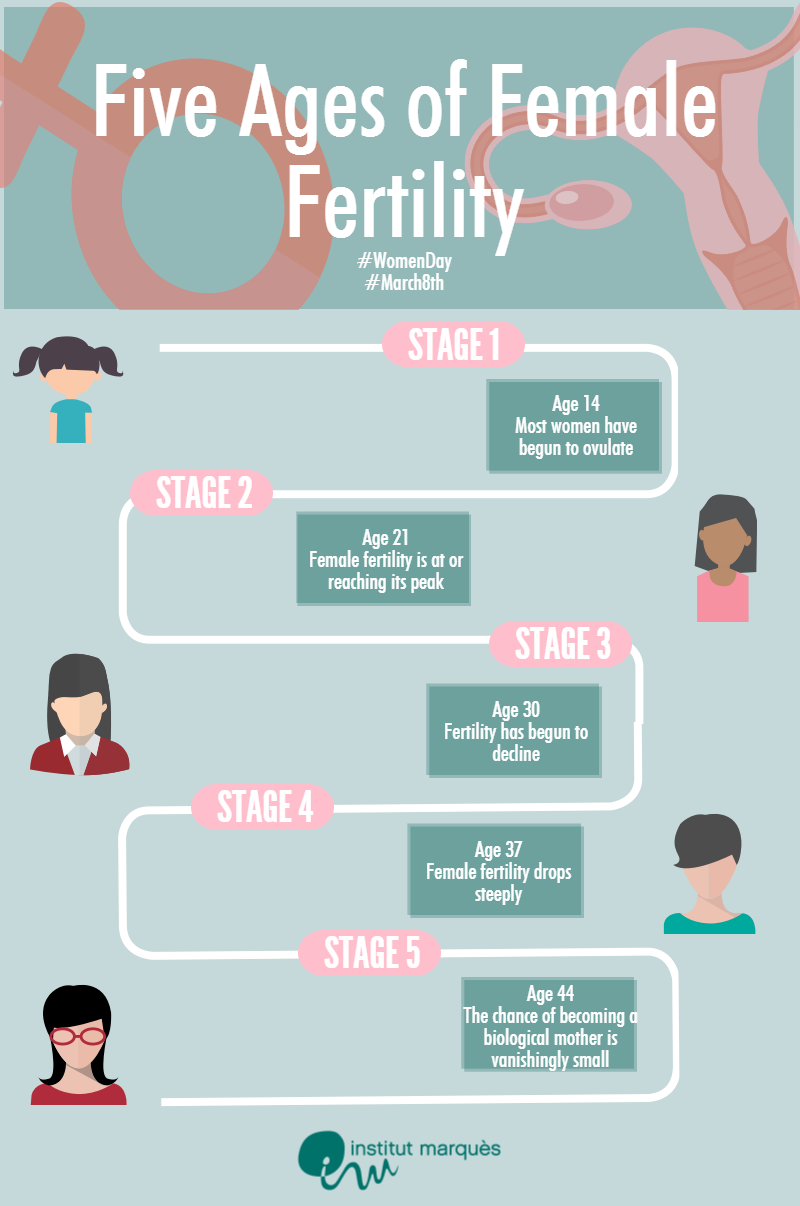 The 5 Stages Of Women S Fertile Life Institut Marques
The 5 Stages Of Women S Fertile Life Institut Marques
What Age Can A Female Stop Giving Birth Quora
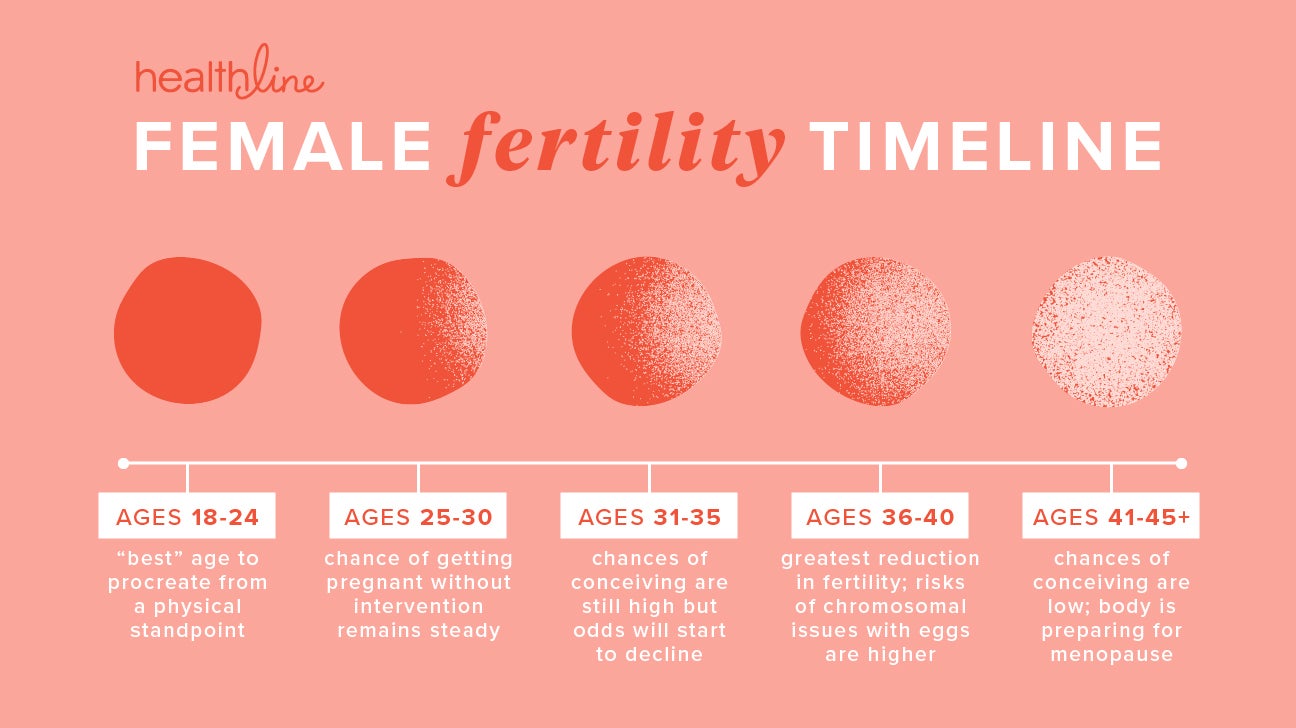 A Breakdown Of The Fertility Timeline
A Breakdown Of The Fertility Timeline
 Your Age And Fertility Babycenter Canada
Your Age And Fertility Babycenter Canada
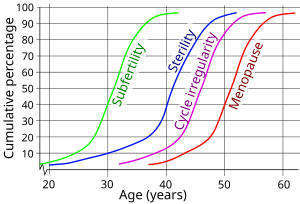 Age And Female Fertility Wikipedia
Age And Female Fertility Wikipedia
 At What Age Does Fertility Begin To Decrease British Fertility Society Bfs
At What Age Does Fertility Begin To Decrease British Fertility Society Bfs
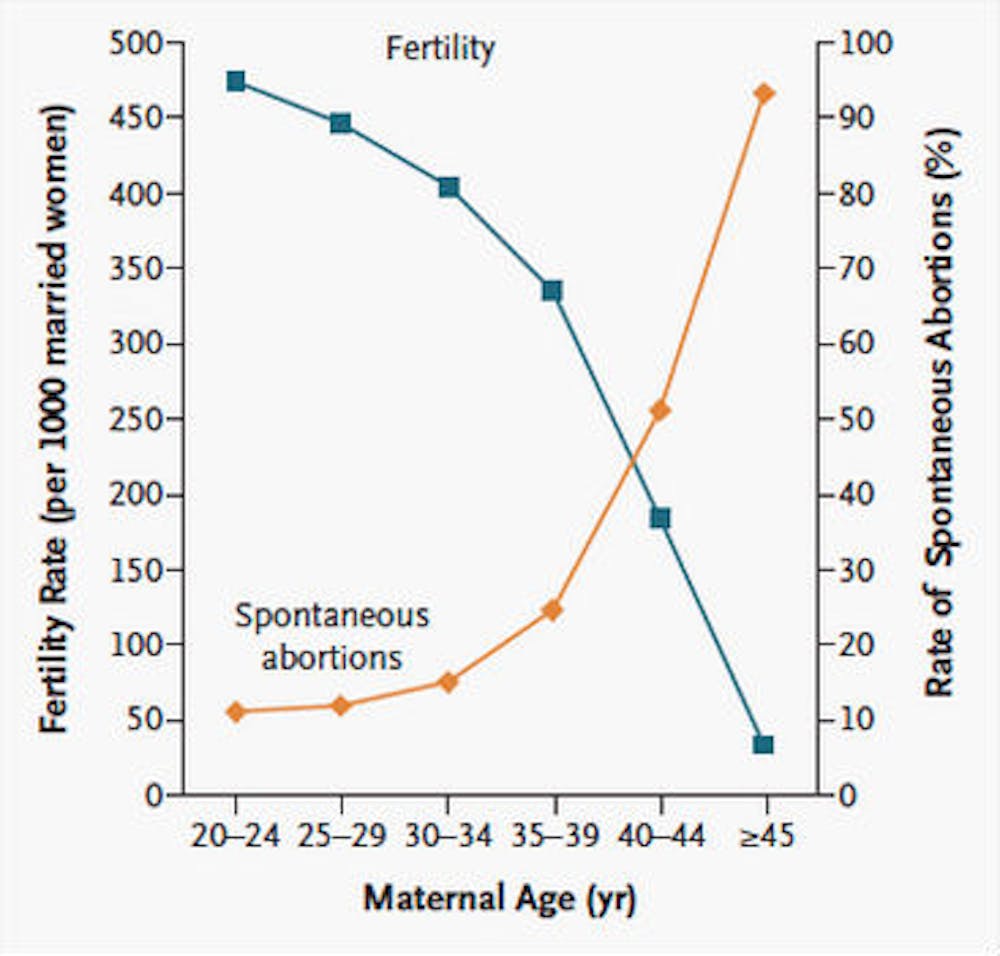 Hard Evidence Does Fertility Really Drop Off A Cliff At 35
Hard Evidence Does Fertility Really Drop Off A Cliff At 35
/symptoms-of-infertility-1960282_lighter-5b3f8f3a46e0fb00375b7995.png) 12 Possible Risk Factors Or Signs Of Infertility
12 Possible Risk Factors Or Signs Of Infertility
 Age And Female Fertility Wikipedia
Age And Female Fertility Wikipedia
 At What Age Does Fertility Begin To Decrease British Fertility Society Bfs
At What Age Does Fertility Begin To Decrease British Fertility Society Bfs
 Your Age And Fertility Babycentre Uk
Your Age And Fertility Babycentre Uk
 Childbearing Age What S Ideal And What Are The Risks
Childbearing Age What S Ideal And What Are The Risks
 Childbearing Age What S Ideal And What Are The Risks
Childbearing Age What S Ideal And What Are The Risks
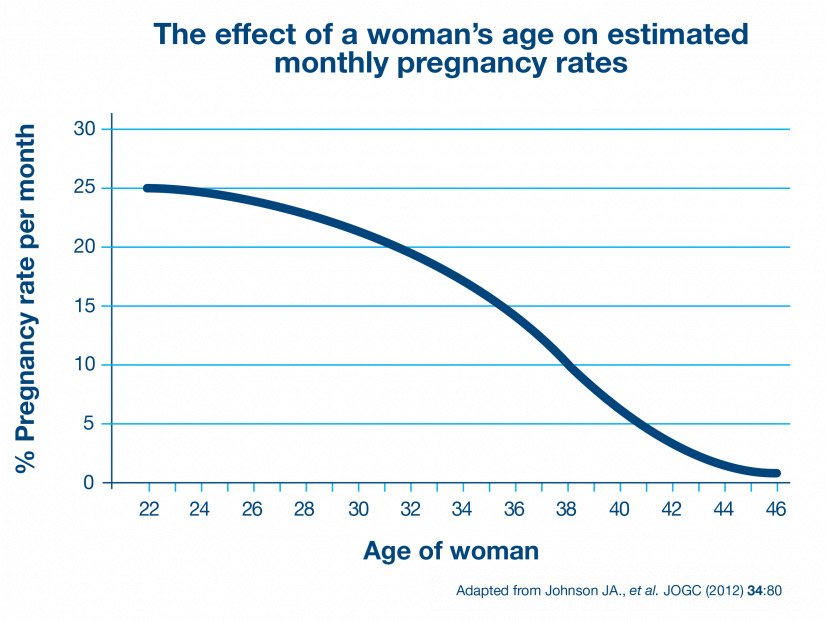 How Long Does It Take To Get Pregnant Clearblue
How Long Does It Take To Get Pregnant Clearblue
Comments
Post a Comment